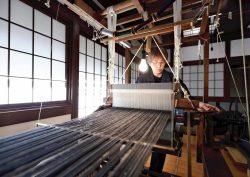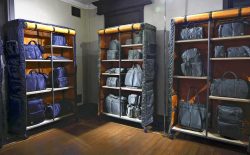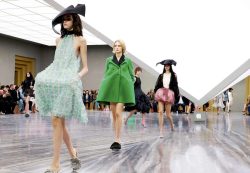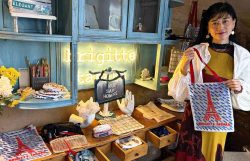
One of the FiT24 fitness gyms run by Aoki Holdings, Inc.
12:00 JST, October 7, 2022
The bribery scandal involving the selection of sponsor companies for the Tokyo Olympic and Paralympic Games led to the arrest of four men on Aug. 17, including Hironori Aoki, the founder and former chairman of major men’s apparel company Aoki Holdings, Inc., and his brother Takahisa Aoki, former vice chairman of the company.
These two men represent the soul of Aoki — when they started the company in 1958, it’s said they rode together on a single bicycle between rice paddies to peddle men’s business suits in Nagano Prefecture. I thought the scandal would send the company’s stock price down, but surprisingly, it’s maintaining an upward trend.
Even before that, Aoki Holdings made a crucial return to profitability in the business year ending in March this year, results that were made public on May 12. The company came back from its worst financial results ever in the previous year, a result of the novel coronavirus pandemic.
Aoki Holdings’ financial results from April 2021 to March 2022 were as follows:
Net sales: ¥154.91 billion (up 8.2% from the previous year)
Operating profit: ¥5.44 billion (deficit of ¥5.79 billion in the previous year)
Ordinary profit: ¥4.36 billion (deficit of ¥6.6 billion in the previous year)
Net profit attributable to owners of the parent company: ¥2.56 billion (deficit of ¥11.93 billion in the previous year)
The company’s financial results for the first quarter this fiscal year, from April 1 to June 30, were released on Aug. 5 and also showed a return to the profitability from the losses in the previous year.
Aoki has often been referred to as a major men’s apparel company. However, the company’s business performance for the business year in March 2022 breaks down as follows (with business profits in parentheses):
Fashion: ¥88.6 billion (¥4.7 billion)
Weddings etc.: ¥7.9 billion (minus ¥0.5 billion)
Entertainment: ¥56.9 billion (¥0.5 billion)
Real estate leasing: ¥4.4 billion (¥0.8 billion)
Due to the pandemic, the profits from Anniversaire, its wedding and multipurpose halls, as well as from its bridal and entertainment businesses have weakened compared to their sales. However these segments add up to ¥69 billion and account for about 40% of the company’s overall business performance, almost on par with its main business, fashion.
The company’s entertainment business includes Cote d’Azur karaoke bars; Kaikatsu Club multipurpose cafes; and FiT24 fitness gyms, which are open around the clock. It had a total of 717 outlets as of the end of June, which far exceeds the number of Aoki’s fashion stores at 604.

Aoki Holdings’ Kaikatsu Club multipurpose cafes also feature manga libraries.
What’s more, women’s fashion has grown to encompass 20.6% of its entire fashion business, as a result of the company’s efforts over the past 20 years regarding women’s attire, including suits for aspiring company employees. It seems it is no longer appropriate to call Aoki a major men’s apparel company.
Once the pandemic comes to an end, the entertainment business segment will surely grow substantially in both sales and profits, so the company must be eagerly anticipating that prospect. Its investors must feel likewise. That’s why they’re continuing to purchase Aoki stock despite the scandal.
In newly developing countries, the apparel business remains a growth industry. In developed countries, however, the practice of dressing up is fading, as is buyers’ motivation to use fashion to attract a romantic partner.
In Japan, where the declining birthrate and graying population are social problems, the apparel and fashion industries are among those suffering from a structural recession. The apparel and fashion market achieved significant growth in Japan from 1960 to 1990. According to a survey by Yano Research Institute, the apparel retail market in Japan was worth ¥15 trillion in 1991, but this dropped to ¥9 trillion in 2019, and the pandemic pushed it further down to ¥7.5 trillion.
The speed with which it halved — just 30 years — is astonishing, even considering the special circumstances of COVID-19.
Japanese apparel companies are also struggling overseas, for example in China. Diversification may be one way to survive, but the reality is that many are not bold or dedicated enough to succeed at this.
Given the circumstances, Aoki’s strategy to stop focusing just on clothing should be applauded. Its honest feeling may be: “Stop calling us a major men’s apparel company.”
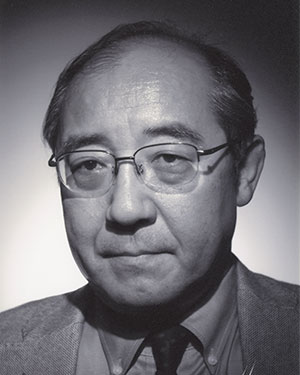
Akira Miura
Miura is a journalist and a former editor in chief of WWD Japan.
Top Articles in Culture
-

BTS to Hold Comeback Concert in Seoul on March 21; Popular Boy Band Releases New Album to Signal Return
-
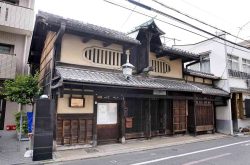
Lifestyle at Kyoto Traditional Machiya Townhouse to Be Showcased in Documentary
-

Director Naomi Kawase’s New Film Explores Heart Transplants in Japan, Production Involved Real Patients, Families
-

‘Jujutsu Kaisen’ Voice Actor Junya Enoki Discusses Rapid Action Scenes in Season 3, Airing Now
-

Tokyo Exhibition Offers Inside Look at Impressionism; 70 of 100 Works on ‘Interiors’ by Monet, Others on Loan from Paris
JN ACCESS RANKING
-

Japan PM Takaichi’s Cabinet Resigns en Masse
-

Japan Institute to Use Domestic Commercial Optical Lattice Clock to Set Japan Standard Time
-

Israeli Ambassador to Japan Speaks about Japan’s Role in the Reconstruction of Gaza
-

Man Infected with Measles Reportedly Dined at Restaurant in Tokyo Station
-

Videos Plagiarized, Reposted with False Subtitles Claiming ‘Ryukyu Belongs to China’; Anti-China False Information Also Posted in Japan


